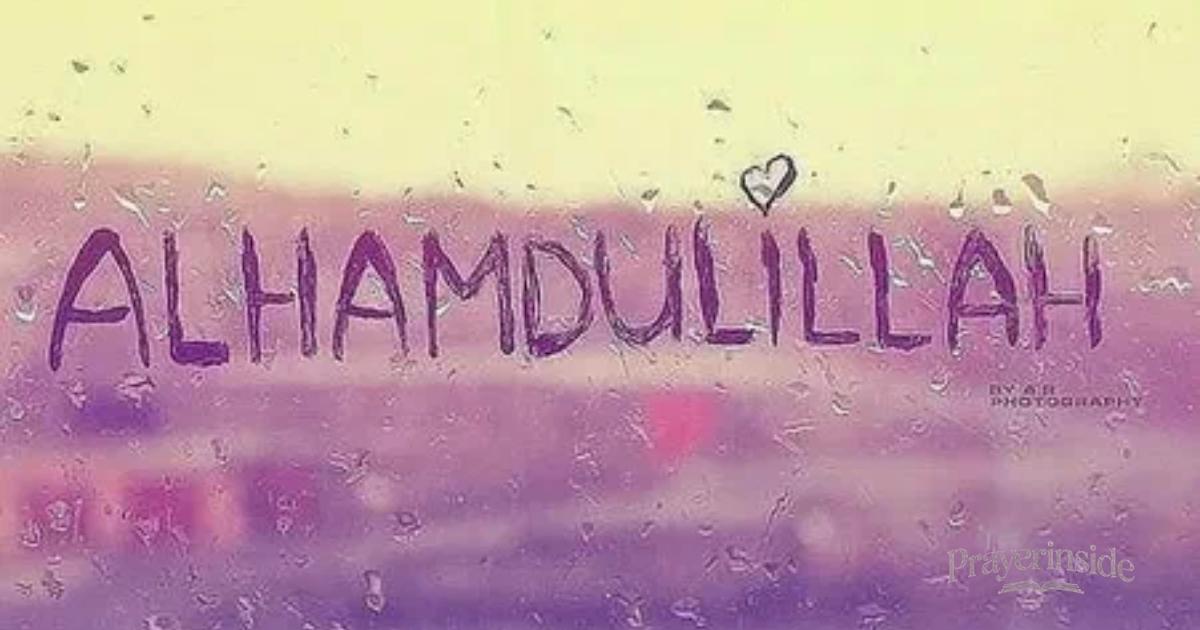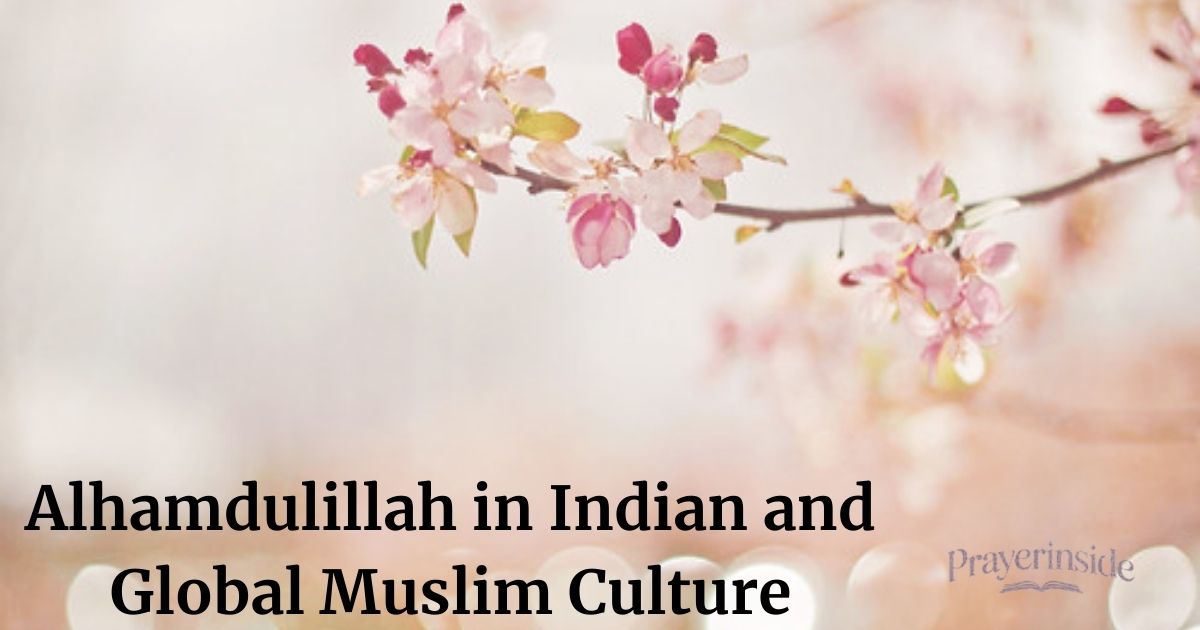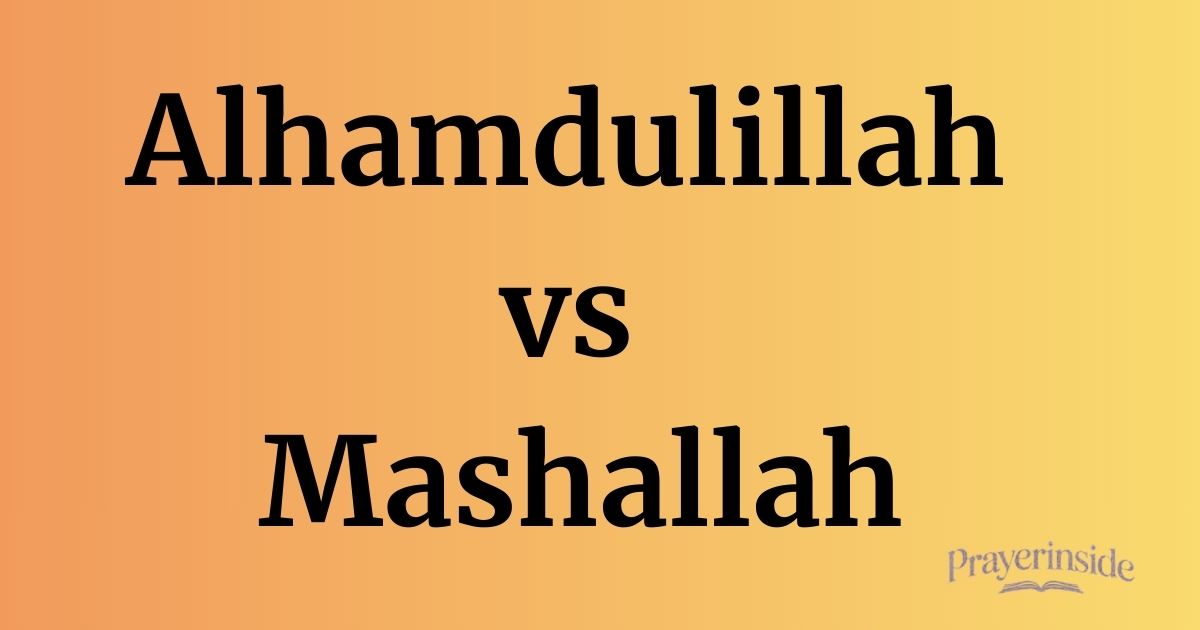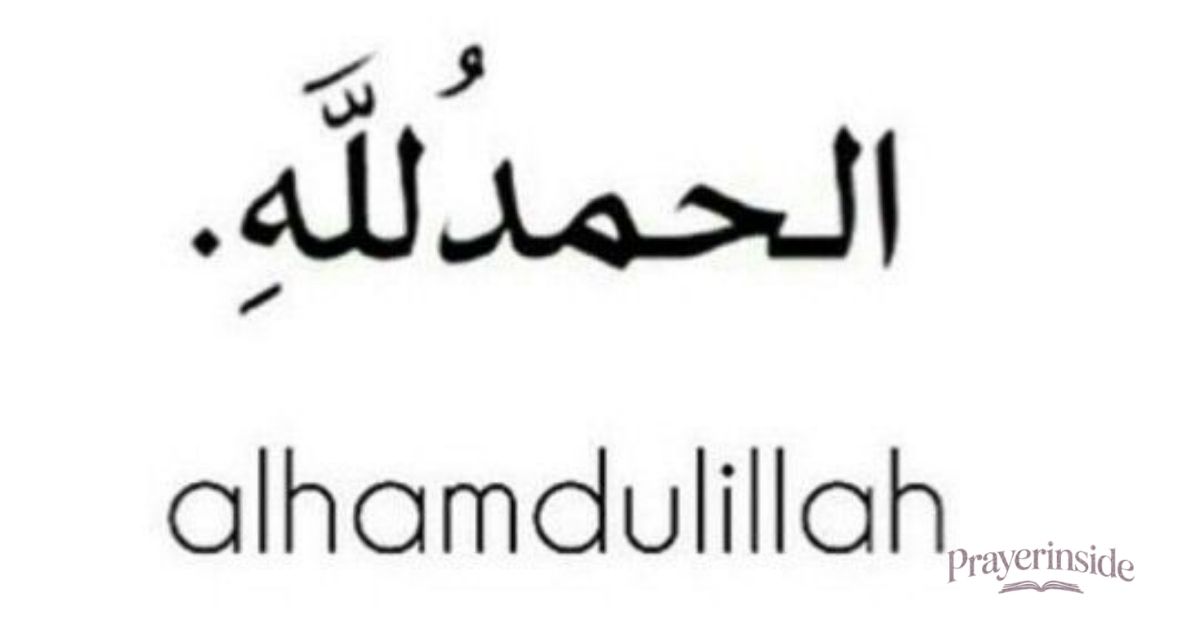Alhamdulillah in Arabic Have you ever heard the word Alhamdulillah (ٱلْحَمْدُ لِلّٰهِ) and wondered what it truly means? This simple Arabic phrase carries deep wisdom. Millions of Muslims around the world say it daily. It’s more than just words. It’s a way to show gratitude, patience, and faith in Allah’s plan.
The phrase literally translates as “All praise is due to Allah” or “Praise be to God.” It’s used to thank Allah for health, safety, blessings, and every small favor. Saying Alhamdulillah can bring peace to the heart, even during tough times. It reminds us to focus on positivity and trust Allah’s plan.
What Does Alhamdulillah Mean?
The word Alhamdulillah is made of three parts:
- Al – the definite article meaning “the.”
- Hamd – meaning “praise” or “thanks.”
- Li-llah – meaning “to Allah.”
Together, it means “All Praise to Allah”. Muslims use it not only for religious reasons but also in daily life. Saying Alhamdulillah after sneezing, meals, or success shows humility, gratitude, and mindfulness.
The Quran begins with this phrase in Surah Al-Fatiha (1:2):
“Alhamdulillahi Rabbil ‘alamin” – All praise is due to Allah, Lord of all worlds.
This verse highlights that gratitude is central to faith. Gratitude is not just for happiness; it is a way to stay connected with Allah in every situation.
Why Muslims Say Alhamdulillah
Saying Alhamdulillah is a Sunnah of Prophet Muhammad (PBUH). He taught Muslims to use it in all circumstances. The Prophet ﷺ said:
“How wonderful is the affair of the believer! If something good happens, he is grateful, and if something bad happens, he is patient—and both are good for him.” (Sahih Muslim)
Whether you pass an exam, recover from illness, or even stub your toe, saying الحمد لله keeps your heart connected to Allah.
Alhamdulillah in Arabic as a Shield Against Negativity

Life can be challenging. Rising prices, health issues, family stress, or personal losses can overwhelm anyone. Saying Alhamdulillah helps focus on blessings instead of problems.
Examples:
- After sneezing: Say الحمد لله to thank Allah for health.
- After meals: Praise Him for food and nourishment.
- During hardship: Trust His plan and remain patient.
The Quran promises:
“If you are grateful, I will surely increase you [in favor].” (Quran 14:7)
Gratitude is a powerful tool to stay positive, even in tough times.
How to Pronounce Alhamdulillah
Pronunciation matters for clarity. The correct way is:
Al-ham-du-lil-lah
Some shorten it to Hamdulillah or Hamdullah, but the original is always preferred. Arabic letters like ح don’t exist in English, so focus on breathing out slightly while saying it.
Using Alhamdulillah in Daily Life
Simple Practices for Busy Muslims
- Morning Routine: Wake up and say, “Al-ham-du-lillah, I’m alive today!”
- Social Media: Share good news with #Alhamdulillah.
- Family Time: Ask kids, “What’s your الحمد لله today?” at dinner.
- Meals: Thank Allah after eating with الحمد لله.
- During Success: Exams, promotions, or health improvements deserve Alhamdulillah.
- During Hard Times: Even challenges are opportunities for gratitude.
Alhamdulillah in Indian and Global Muslim Culture

In India and other countries, saying Alhamdulillah is common:
- Weddings: “الحمد لله, the bride looked beautiful!”
- Eid celebrations: “الحمد لله, we fasted Ramadan successfully!”
- Farming: Farmers say it after harvests, thanking Allah for rain.
Even in casual conversation, it is used as a friendly expression of wellbeing.
Teaching Kids to Say Alhamdulillah
Easy Ways to Teach Gratitude
- Gratitude Jar: Kids drop notes like “Alhamdulillah for my toys.”
- Bedtime Routine: Ask, “What made you say الحمد لله today?”
- Cartoon Examples: Show Islamic cartoons where characters use the phrase.
- Reward System: Give stickers when kids say it without prompting.
- Lead by Example: Kids imitate what adults do.
Gratitude from childhood shapes a positive mindset and strengthens faith.
Alhamdulillah During Sadness or Hardship
Even during sadness, saying Alhamdulillah is encouraged. Prophet Muhammad ﷺ taught:
“Inna lillahi wa inna ilayhi raji’un. Allahumma ajirni fi musibati…”
Follow with Alhamdulillah, trusting Allah’s wisdom.
This practice teaches patience and strengthens spiritual resilience. Life’s challenges are easier to face when gratitude is a habit.
Alhamdulillah vs Mashallah

- Alhamdulillah: Praise Allah for blessings, e.g., “I got a job, الحمد لله.”
- Mashallah: Praise Allah to protect from envy, e.g., “Mashallah, your child is smart!”
Both show gratitude, but the context is different. Learning these distinctions is essential for correct usage in conversations.
Science of Gratitude and Alhamdulillah
Research shows what Islam taught centuries ago:
- Grateful people are 25% happier (Harvard Study).
- Saying Alhamdulillah reduces stress and improves sleep.
- Gratitude improves emotional health and social relationships.
Saying Alhamdulillah is a spiritual and scientific practice that benefits the mind, heart, and soul.
Alhamdulillah in Everyday Life Examples
- Example 1: “Alhamdulillah, I passed my exam today!”
- Example 2: “Alhamdulillah for good health and family support.”
- Example 3: “Alhamdulillah, we reached home safely in heavy traffic.”
- Example 4: “Alhamdulillah, I received guidance from a helpful mentor.”
- Example 5: “Alhamdulillah, even small joys make life meaningful.”
Also Read : 64 Bible Verses About Healing and Strength for Every Struggle
Conclusion
Understanding alhamdulillah in arabic helps us stay grateful every day. Saying alhamdulillah in arabic reminds us to thank Allah for every blessing. We must remember that life has ups and downs, and alhamdulillah keeps our hearts calm. Even small moments, like finishing a meal or recovering from illness, are perfect times to say alhamdulillah in arabic.
Using alhamdulillah in arabic daily strengthens faith and patience. We must practice it in every situation, happy or hard. Saying alhamdulillah in arabic after sneezing, achieving goals, or helping others shows humility. Life becomes brighter when we always say alhamdulillah in arabic. Gratitude grows, stress reduces, and joy increases. We must make alhamdulillah in arabic a part of our routine. Always remember, saying alhamdulillah in arabic is not just words it’s a way of life.

“I’m William David, founder of PrayerInside.info. With 4 years of faith-based writing experience, I share heartfelt prayers to inspire, heal, and uplift souls daily.”

